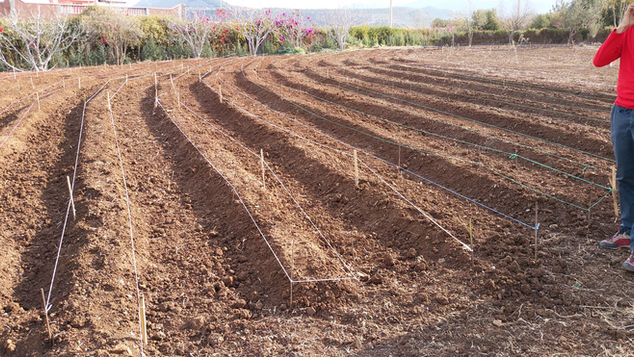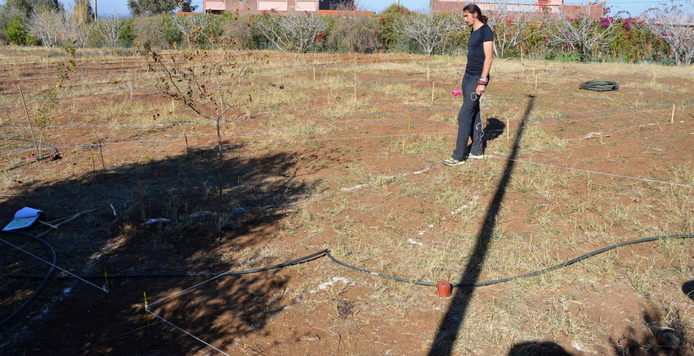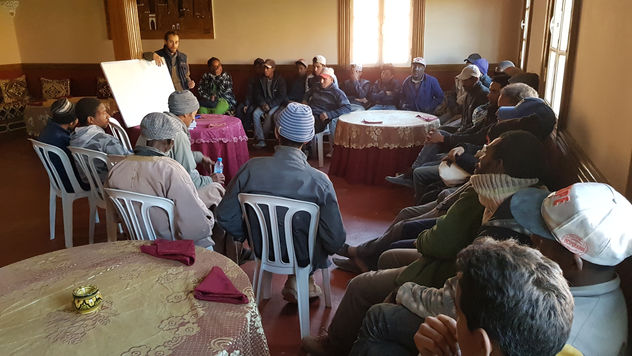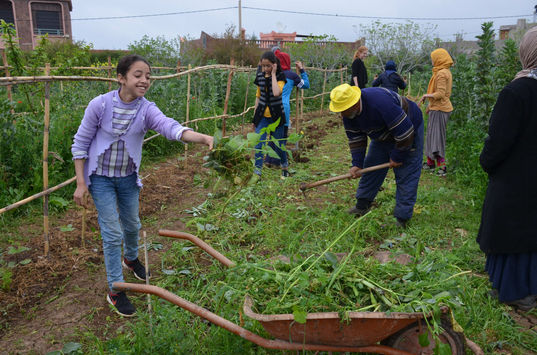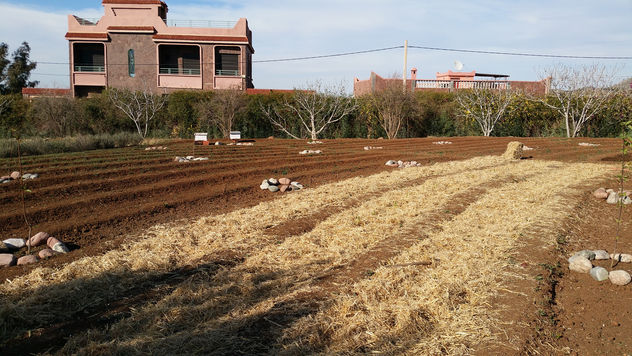
Pilot garden in Permaculture for a boarding school for young Berber girls
Global diversity foundation project; Dar Taliba
Protection and enhancement of natural spaces: Citizen participation in the protection of the environment with the establishment of a place for training and education in ecology for a boarding school for 130 young Berber girls.
“Over the past few months the gardens at Dar Taliba Pension, which are part of our High Atlas Cultural Landscapes program, have flourished. The young girls have harvested lots of delicious vegetables, enough to provide weekly school meals for the current 130 students. in residence. "The vegetables from our garden, which the young girls have planted, taste better than those from the souk (local market)", explains the gardener of Dar Taliba, Al Hoessein ".
@ global-diversity.org / dar-taliba

Respond to issues ecological

Pilot project in popular education over a period of 3 years :
My mission: to develop educational tools to respond to issues.
Design and implementation of a pilot center .
Design and application of a 2-year educational program.
Recycling of bio-waste by composting for garden amendment.
Permaculture course for food production adapted to climates and local issues (arid zone).
Creation of an ethnobotanical garden to sensitize and reconnect the young generations to their botanical and medicinal heritage to fight against its disappearance.
Creation of a market gardening zone on the model of agroforestry in order to supply the canteen of the establishment.
Creation of a production area for mother plants of endemic aromatic and medicinal plants for seed reproduction and multiplication by cuttings.
Creation of an economic model , harvesting, drying, processing of plants for sale.
Creation of an ethnobotanical garden for the conservation and education of endemic plants of the High Atlas.
General information:
Project leader: NGO Global Diversity Foundation
Design, project management, training, support: Radiant Design (Fabien Tournan)
Surface: 3000m²
Irrigation: drip - Water "borehole"
Duration of implantation: 3 months
Target audience: 130 students and parents
The project in pictures
by theme ...
DESIGN
Design
- Read the landscape.
- Take into account the human and material resources of the project.
- Establish a step-by-step action plan.
- Set up the pilot garden and start production by training staff and students.
TOPOGRAPHY
Picketing, postpone the plan in reality
- Establish the level lines with an Egyptian compass or laser.
- Transfer all the elements of the plan to the area.
LES ZONES DU DESIGN
Train, support, empower
- Training cycles in the form of free participatory workshops, opening up to employment for citizens who have followed them.
- Training over 2 days, theoretical courses, application in the area, work sampling and implementation of a roadmap.
- The students follow the roadmap independently and carry out the design by following the tools acquired during the training.
Création de zone d'apprentissage
TRAINING CYCLE
Train, support, empower
- Training cycles in the form of free participatory workshops, opening up to employment for citizens who have followed them.
- Training over 2 days, theoretical courses, application in the area, work sampling and implementation of a roadmap.
- The students follow the roadmap independently and carry out the design by following the tools acquired during the training.
Création de zone d'apprentissage
TOPOGRAPHY
Des arbres dans ses légumes
Materialize the contour lines
Making Egyptian compasses and learning surveying tools (laser level).
Staking out areas.
Evaluation of the size of the structures according to the estimated water flow and the slope.
ESTABLISHMENT OF SWALES AND BOOMERANGS
Production de pieds "MÈRE"
Establish structures to fight against erosion
Installation of swales, weirs, active gabions (cages) and passive gabions (piles of stones).
Installation of boomerangs and other structures.
THE RAINWATER STORAGE BASIN
Production de plants
Capture rainwater to reforest the valley
Installation of a dam and a 130m³ basin without metal reinforcements.
Study of the basin with a hydraulic engineer for the distribution of masses according to the pressure of the water and the size of the walls (height / width ratio, dam / weight technique).
Delivery channel with settling tank to retain large particles resulting from erosion.
Arrival of water in the basin, then redistribution in the drip network by gravity.
SETTING UP THE DAM
Zone d'apprentissage et d'échange
Fill a basin with a dam to collect rainwater
Find a thalweg allowing sufficient water collection to supply the basin.
Find the location with backing rocks to anchor the dam.
Manage the difference in level between the exit of the dam and the entry of water into the basin.
Delivery channel with decanter to filter sand and silt.



.png)





















